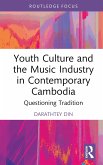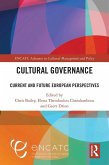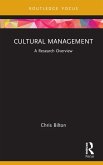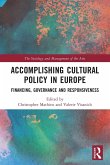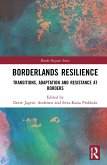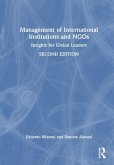This book uncovers the processes at play in the development of cultural policies, projects and networks in spaces at the edge of their countries, marked by their proximity with a borderline.
On a subject which is studied mainly in North America and Western Europe and based on individual case studies, its originality lies in offering a comparative view on the subject, as well as in comparing a European case - the France-Germany borderlands - to a South American case - the Brazil-Uruguay borderlands. Through a multi-sited ethnographic study, the author develops an analysis of the formal and informal processes and networks which sustain this cultural action, looking at the relative contribution of processes led by institutions, cultural agents and the civil society.
This book provides theoretical tools for the analysis of the way cultural ecosystems function in borderlands and is valuable reading for scholars of cultural policy, geography and arts management.
On a subject which is studied mainly in North America and Western Europe and based on individual case studies, its originality lies in offering a comparative view on the subject, as well as in comparing a European case - the France-Germany borderlands - to a South American case - the Brazil-Uruguay borderlands. Through a multi-sited ethnographic study, the author develops an analysis of the formal and informal processes and networks which sustain this cultural action, looking at the relative contribution of processes led by institutions, cultural agents and the civil society.
This book provides theoretical tools for the analysis of the way cultural ecosystems function in borderlands and is valuable reading for scholars of cultural policy, geography and arts management.
"Solène Marié builds a remarkable theoretical proposal, contributing to fully understanding political systems at borders, far beyond traditional analyses of cross-border mechanisms. Her very fine understanding of - still scientifically underexplored - Latin American border systems also provides the conceptual bases to a shift in gaze on Europeans cases, notably through her exploration of both formal and informal mechanisms for cultural cooperation." Anne-Laure Amilhat Szary, Université Grenoble-Alpes, France
"The jury was impressed by the originality of the topic and its complexity, being conceptually well elaborated and having well-designed research methodology. The comparative perspective and having chosen as the first angle the South American perspective compared to the European one, was highly appreciated by the jury as it was not Eurocentric." Annick Schramme, University of Antwerp, Belgium, and member of the jury for ENCATC's 2021 research award on cultural policy and cultural management
"In short, excellent, innovative and original work, which enables the understanding of a subject of great importance, putting an emphasis on everyday life integration. A text which deserves to be taken into account by State authorities in the context of public border policies." Eduardo Palermo, Centro de Documentación Historica del Rio de la Plata y Brasil/Universidad de Montevideo and Museo del Patrimonio Regional, Rivera, Uruguay
"Her study objectifies precisely the complex arrangements of these borders, and the counterintuitive configurations which they can bring about." Thomas Brisson, Université Paris 8, France
"The jury was impressed by the originality of the topic and its complexity, being conceptually well elaborated and having well-designed research methodology. The comparative perspective and having chosen as the first angle the South American perspective compared to the European one, was highly appreciated by the jury as it was not Eurocentric." Annick Schramme, University of Antwerp, Belgium, and member of the jury for ENCATC's 2021 research award on cultural policy and cultural management
"In short, excellent, innovative and original work, which enables the understanding of a subject of great importance, putting an emphasis on everyday life integration. A text which deserves to be taken into account by State authorities in the context of public border policies." Eduardo Palermo, Centro de Documentación Historica del Rio de la Plata y Brasil/Universidad de Montevideo and Museo del Patrimonio Regional, Rivera, Uruguay
"Her study objectifies precisely the complex arrangements of these borders, and the counterintuitive configurations which they can bring about." Thomas Brisson, Université Paris 8, France


